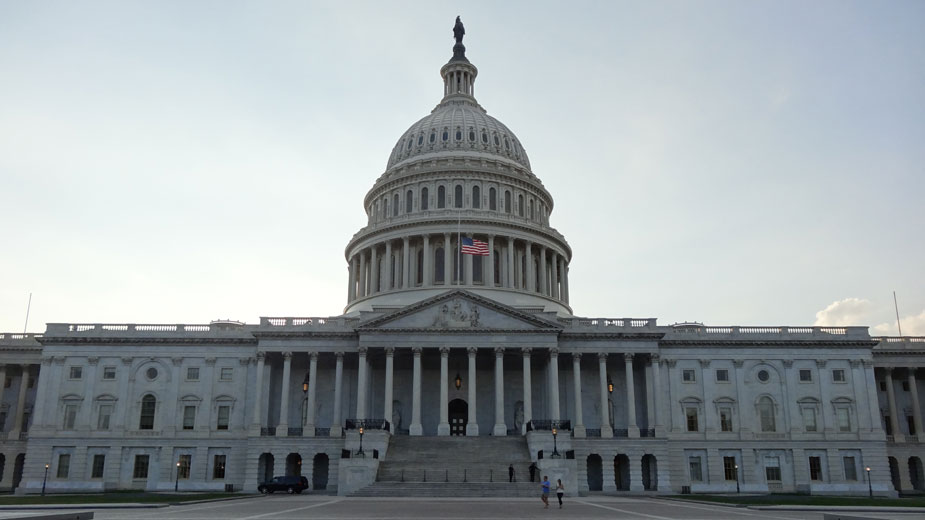Government Shutdown Not Yet Affecting Valley Economy
YOUNGSTOWN, Ohio – Most services, projects and businesses across the Mahoning Valley haven’t yet felt the pinch of the partial shutdown of the federal government – now entering its third week with no resolution in sight.
That could change should the impasse continue through the month, possibly affecting tax filings, federal loan funding programs, subsidies for the agricultural community and even the introduction of new brands of beer on the market.
“Right now, we have more than $5 million in U.S. Small Business Administration lending activity in progress,” said Michael Conway, executive director of the Mahoning Valley Economic Development Corp., or MVEDC. The organization administers the U.S. SBA 504 loan program to help provide money for new businesses or expansions of existing companies.
As of now, these projects are still going forward, Conway said, since they have secured bridge funding through local lenders and those lenders would be reimbursed through the SBA. Among the agency’s current projects are ones for an auto dealership and a couple of manufacturers.
“The shutdown shouldn’t slow down the projects, but getting the final piece of financing in place is predicated on this situation being resolved,” he added. “It definitely has an affect on the process.”
However, the establishment of any new loan funds through agencies such as the U.S. Department of Commerce’s Economic Development Administration could not move ahead in the midst of a shutdown, he said.
“We have a couple of projects in process and we have to place those on hold,” Conway said.
Congress and the White House have reached a stalemate in negotiations to fund the U.S. government, including the pay of more than 800,000 federal employees. At the heart of the matter is President Donald Trump’s insistence that any spending bill include more than $5 billion to fund a wall across the border between the U.S. and Mexico.
Democrats, who now control the U.S. House of Representatives, have said they would not support a bill with such a provision.
Agencies such as the Social Security Administration and programs such as Medicare and Medicaid are not affected by the shutdown. Benefits for U.S. veterans would also continue unabated.
Yet federally funded operations such as the Transportation Security Administration, the National Park Service, museums, the Internal Revenue Service and the U.S. Department of Agriculture remain unfunded for this year.
That means important programs such as the Department of Agriculture’s Supplemental Nutrition Assistance Program, or SNAP, could be in danger of running out of funds by the middle of February.
SNAP provides food stamps for 38 million low-income Americans that subsidize the cost of groceries. Reducing this benefit could impact retailers or grocers that accept these programs. The USDA has not released any information regarding the current funding level for the program.
Should the funding clamp on the USDA continue, it would likely jeopardize local soybean farmers’ access to new programs initiated by the Trump administration to offset the sting of the nagging trade war between the U.S. and China.
“The Farm Service Agency is shut down and there are some deadlines looming,” said Lee Beers, extension educator for agriculture and natural resources for the OSU Extension in Cortland.
Soybean farmers across the country who are negatively impacted by the trade conflict with China have until Jan. 15 to submit crop information to the USDA in order to qualify for payments intended to ease the impact of tariffs imposed by China.
Six months ago, China responded to the Trump Administration’s 25% tariff it placed on $34 billion of Chinese goods with tariffs on commodities such as soybeans. In 2017, U.S. soybean exports to China amounted to more than $14 billion. Now, that market is compromised by the trade war.
The Trump Administration developed a new program that would provide payments to soybean farmers to help compensate them for losses incurred because of the trade war.
“My guess is that they’ll extend the deadline,” he predicted.
Moreover, should the government remained closed into February, the reserve funding for the Natural Resource Conservation Service will expire, rendering it inactive, Beers said. That agency helps with conservation and environmental safety initiatives in the region.
“These are the two biggest issues that I’ve been fielding questions about over the past week,” Beers said. “This has the potential of affecting a lot of the agricultural community, but I don’t think we’ll see any farms go out of business because of this.”
Even breweries could be impacted by the shutdown. Since the Alcohol and Tobacco Tax and Trade Bureau remains closed, breweries are prohibited from introducing new beers across state lines without a label approval from the federal government.
“It doesn’t affect us because we only distribute in the state of Ohio,” said Josh Dunn, owner of Birdfish Beer Co. in Columbiana. “It could affect someone waiting for a new license, though.”
However, Dunn said he received word that an fermenter that uses imported components that Birdfish has on order will be delayed because of cutbacks at the U.S. Customs office. “It could affect our inventory if this drags on.”
Adam Keck, owner of Modern Methods Brewing Co. in Warren, said the government shutdown could hold up any new plans to obtain a license to start a local brewery. “If we were in that position now, with the holidays and everything, it would have been really bad,” he said.
U.S. Rep. Bill Johnson, a Republican who represents the 6th District of Ohio, which includes portions of the Mahoning Valley, said resolving the issue is simple.
“Senate Democrats and Nancy Pelosi need to come to the table, agree on the $5 billion and open the government,” the congressmen said while touring Windsor House’s skilled nursing center in Canfield Monday. “My constituents are telling me that they want border security. Let’s open the government with border security.”
U.S. Rep. Tim Ryan, D-13, Ohio, last week placed the blame squarely on the shoulders of Republicans and President Trump.
“The government shutdown is a crisis manufactured by President Trump and congressional Republicans. Their political game has put the lives of 800,000 dedicated public servants into uncertainty, many who live paycheck to paycheck,” Ryan said Jan. 3, shortly after the House passed legislation that would restore government funding.
The Senate, however, refused to take up the legislation.
Meanwhile, the White House has ordered the IRS to process tax refunds through the course of the shutdown, while the federal courts are fully funded until at least next week.
“We are definitely good through Jan. 11, so right now we’re not terribly affected,” said Sandy Opacich, clerk of court for the U.S. District Court for the Northern District of Ohio. The district, which includes Cleveland, Akron and Youngstown, employs between 250 and 300 people, all of whom are still being paid.
District courts across the country are being asked to examine their budgets in order to spread out their costs and extend funding for another week after Friday, Opacich said. Should that not happen, employees would either be furloughed or assigned work without regular pay.
“We’re waiting on some guidance,” she said.
Copyright 2024 The Business Journal, Youngstown, Ohio.



